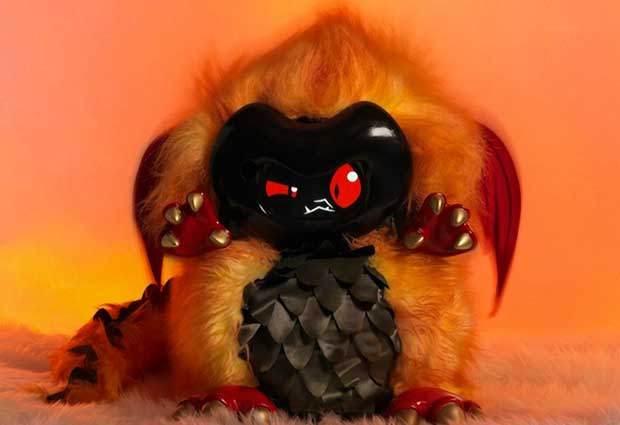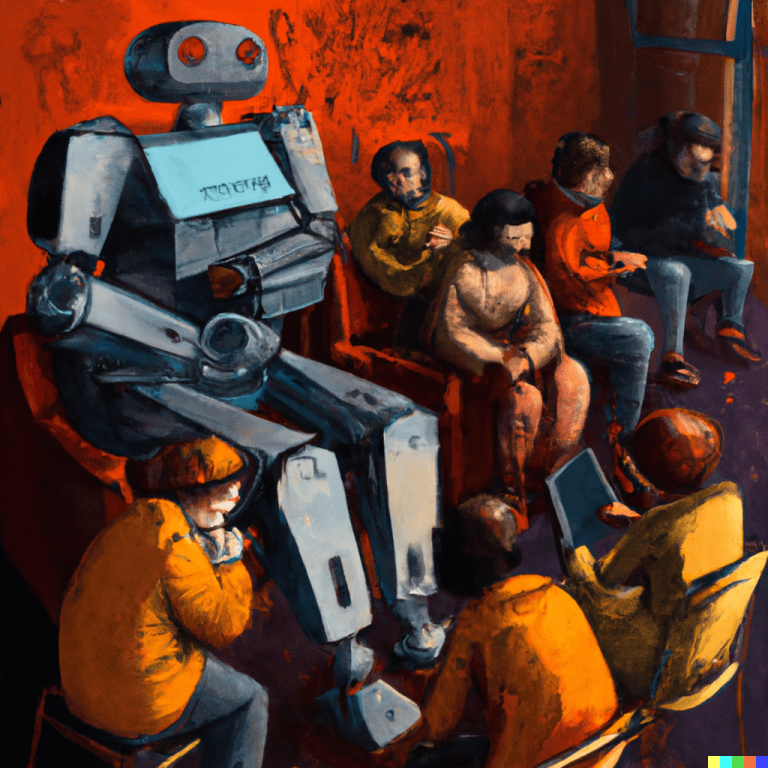Chronicle about GUNi 2018 Barcelona. A reflection about the future relations of Humanities and the Scientific and Technological disciplines
18 December, 2018
Chronicle about the International Conference on Humanities and Higher Education: Generating Synergies between Science, Technology and Humanities
Last 19th and 20th November 2018, I was attending the GUNi International Conference on Humanities and Higher Education about the synergies between Science, Technology and Humanities as a member of the UOC eLearn Center Research and Trend Analysis team. The venue was the CosmoCaixa Science Museum in Barcelona.
The International Conference is conceived as an integral part of the process of elaboration of the 7th GUNi Higher Education in the World Report (to be published in 2019) which is part of the series “Higher Education in the World Report” and aimed to be an international meeting to debate on the role of the humanities its interrelation with science and technology in the 21st Century, focusing on Higher Education and their importance to boost a more equitable, more responsible and more democratic society. The event gathered international representatives from diverse areas of knowledge and fields (education, research, public institutions, organizations) in three types of sessions including keynote speeches, workshops, and presentations of experiences and cases.
The main topics in which the conference turned around were the transformations our society is facing, environmental and climatic change, scientific and the technological advances such as AI and Big Data (relating to neuroscience, genomics, etc.) that make us think about the conception we have of the human being and last, the idea of globalization and its implications.
As the conference scope reads, “of humanities depends the capacity to elaborate the sense and the value of the human experience in times of change”.
The intention of this chronicle is to highlight some of the more interesting moments of the conference.
First Day
Arne Jarrick (Professor of History at Stockholm University, Sweden) talked [1] about the need to fight knowledge resistance in the “post knowledge society” and highlighted the spreading speed and growth of fake news. Jarrick stated that our basic mission is to be truth seekers and brought attention to the importance of humanities and humanists, appointing to the unique capacity for cultural change based on innovation.
Carme Torras (Research Professor at the Spanish Scientific Research Council -CSIC-, and Head of the Perception and Manipulation group at the Robotics Institute in Barcelona) made us reflect upon different topics related to robotics and the advances of AI and our relation with artificial emotional artifacts [2]. One of the topics was roboethics or machine ethics: ethics based on the potential future consciousness of robots. Torras talked about the “uncanny valley”: how does the robot appearance influence in public acceptance and the advantages and dangers of robots simulating emotions. She even asked if emotional attachment to robots should be encouraged, in the case of children, for instance. In relation to humanities, she established two types of bridges between them and robotics; the first, by studies with findings that discover trends (scholarly work); the second is Technology based fiction (Art, creative thinking). As an example of this last point, we can refer to the novel The vestigial heart, written by Torras herself and published by MIT Press. She also mentioned the interesting interdisciplinary example of Oxford’s Computer science and Philosophy degree.
In the session “Global challenges that require science, technology and humanities to be integrated: implications for Higher Education and worldwide approaches” Josep Anton Planell (President of the UOC, GUNI and the ACUP) stated that universities have a strong social impact. Universities need to educate global citizens; local impacts end up being global (highlighting the importance of the SDGs -Sustainable Development Goals- for the 2030 Agenda).
In his Keynote “Higher Education in the New Era”, Federico Mayor Zaragoza (Peace Culture Foundation) talked about the importance of digital technology, which made us able to express ourselves and the voice of all human beings started to be heard. Also about our responsibilities on the generations to come and the fact that technology must advance altogether with humanities. His speech was full of beautiful and positive statements such as “All the educational community must be conscious that now we must act. From Si vis pacem para bellum to Si vis pacem para verbum. There are many ‘impossibles’ today that can be possible tomorrow”. One important idea in relation to the 2030 Agenda, was that, for the UNESCO, to be educated is “To be free and responsible”.
In relation to the Workshops of both days, the questions that triggered the teamwork were offered inside a fortune cookie. This idea was created and presented by the Escola Massana Professor Pep Tornabell (Architect. Professor at the Bachelor of Arts and Design at Escola Massana, co-founder of CODA and co-promoter of La Deriva) and his students.
The workshop I attended was “Humanities beyond Higher Education” chaired by UOC expert Marina Garcés (philosopher and Professor of Humanities at UOC). We were randomly given a word through a fortune cookie. Ours was “Transformation” so we had to develop questions, challenges and proposals regarding humanities beyond Higher Education. Questions: how do we transfer humanities language to other disciplines? How can we cooperate? Challenges: applications and uses of STEMS and Humanities. To rethink the values of humanities. We must achieve a plural society capable of dialoguing and integrating humanities in technical teams. Proposals: finding common ground to enter into dialog. Trying these practices during K-12 (before it is too late). Measure the impact. Widening our rationality to integrate different kinds of knowledge.
Second Day
The keynote speech of Rosi Braidotti (Distinguished University Professor and founding Director of the Centre for the Humanities at Utrecht University) was a real success. She talked about the critical Posthumanities, the cognitive capitalism, our need to deconstruct the social imaginary. Humanism is a discipline that rethinks and criticizes itself; therefore there is a need to adapt its concepts to technologies. Industry wants us to see the results of technology from the benefits but not the garbage and disasters it generates. The 4th industrial age Vs. the 6th extinction (the planet is dying).
The second Workshop I attended to was Sustainability & Ethics: Higher Education contributing to the world challenges, chaired by David Bueno (Professor of Genetics at Universitat de Barcelona and former researcher at Oxford University). We were organized by sorted questions found in a fortune cookie. My team question was: “Can knowledge of humanities in science and technology programmes contribute to redefine the anthropocentric vision of the World? With what objective?” Our answer was affirmative. Until now, human needs and benefits were situated at the center, but now we are trying to develop systems to be kind with the environment, with our peers and with animals; we are inclusive in terms related to cultures, religions; luckily society is changing. Humans are responsible and look for solutions. Disciplines are melting and we lack something so Humanities can work as a conjunctive tissue to help sciences and technologies growing altogether. We all need to develop this anthropocentric change, sharing ideas, contributing between disciplines. Also, technical enhancement has changed the point of view of anthropocentrism, f.i. through the latest advances in AI and robotics.
One of the latest sessions I would like to highlight is Digital experiences for humans: artificial intelligence and the seven liberal arts. Josep M. Ganyet (founder of Mortensen and Professor at Pompeu Fabra University), underlined that the disciplines of the Trivium and Quadrivium were exclusive of humans and that now machines, even though are not intelligent, are proficient in many of their aspects. Pau Alsina (Professor of Arts and Humanities Department at UOC and Director of the Artnodes journal) thinks the collaboration between artists and humanists is pushing boundaries. Nowadays we are creating creative machines. Artists like Harold Cohen are creating “artist” machines such as AARON which Cohen designed so that it could create art even after the death of the artist. Since the ’70s, artists came to computer science to create “art that can create art”. Now there is Virtual Reality, Software programming, and we need interdisciplinarity of the structures. Ventura Barba (Advanced music- Sónar) stated that now machines are creating better than humans. It may be scary, but it is still uncertain; in this uncertainty, creators have a predominant goal in the imagination of the future. We cannot just rely on sciences, laws and economy. In times of change, we need to trust in people thinking out of the box by means of interdisciplinary approaches.
In conclusion
This conference settled a space for the different professionals of the involved sectors to have an arena in which to share and discuss the perspectives that are defining the future landscape of this intersection between humanities, social sciences and the disciplines involved in the STEM.
We can state to summarize that, to face the technological and technified future, to be prepared for Horizon 2030 (and beyond) and to achieve the SDGs and create a better world, we must apprehend the importance of the understanding between the synergies of this varied disciplines and form bonds between them. This must be done from the beginning of the educational cycle until Lifelong Learning and incorporate all of these liaisons in the corporate world.
References
[1] “Knowledge resistance and other global challenges in research and education, in the humanities and elsewhere”.
[2] “Robotics meets the humanities: Some initiatives for ethics education and dissemination”.











